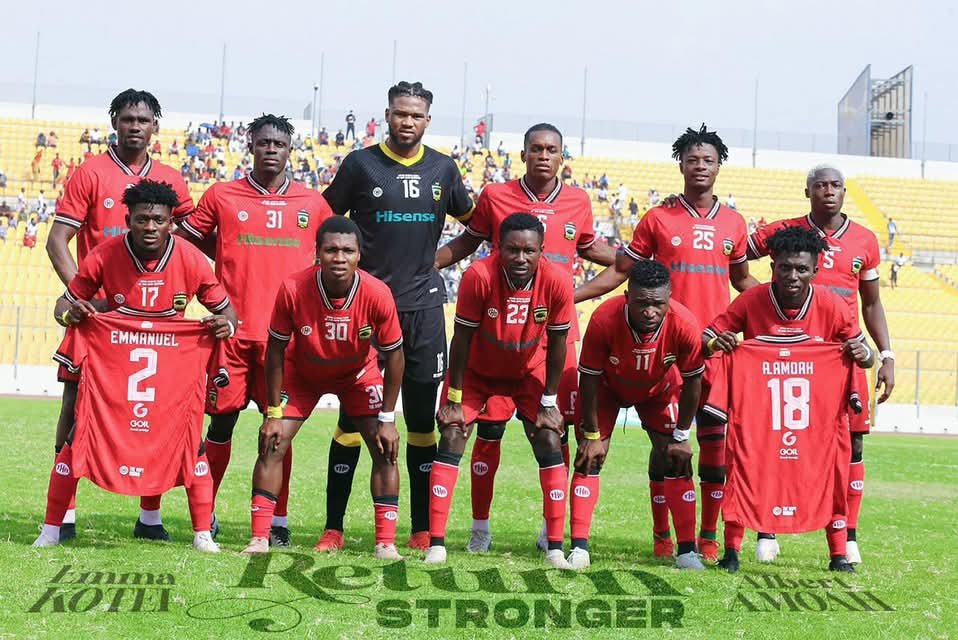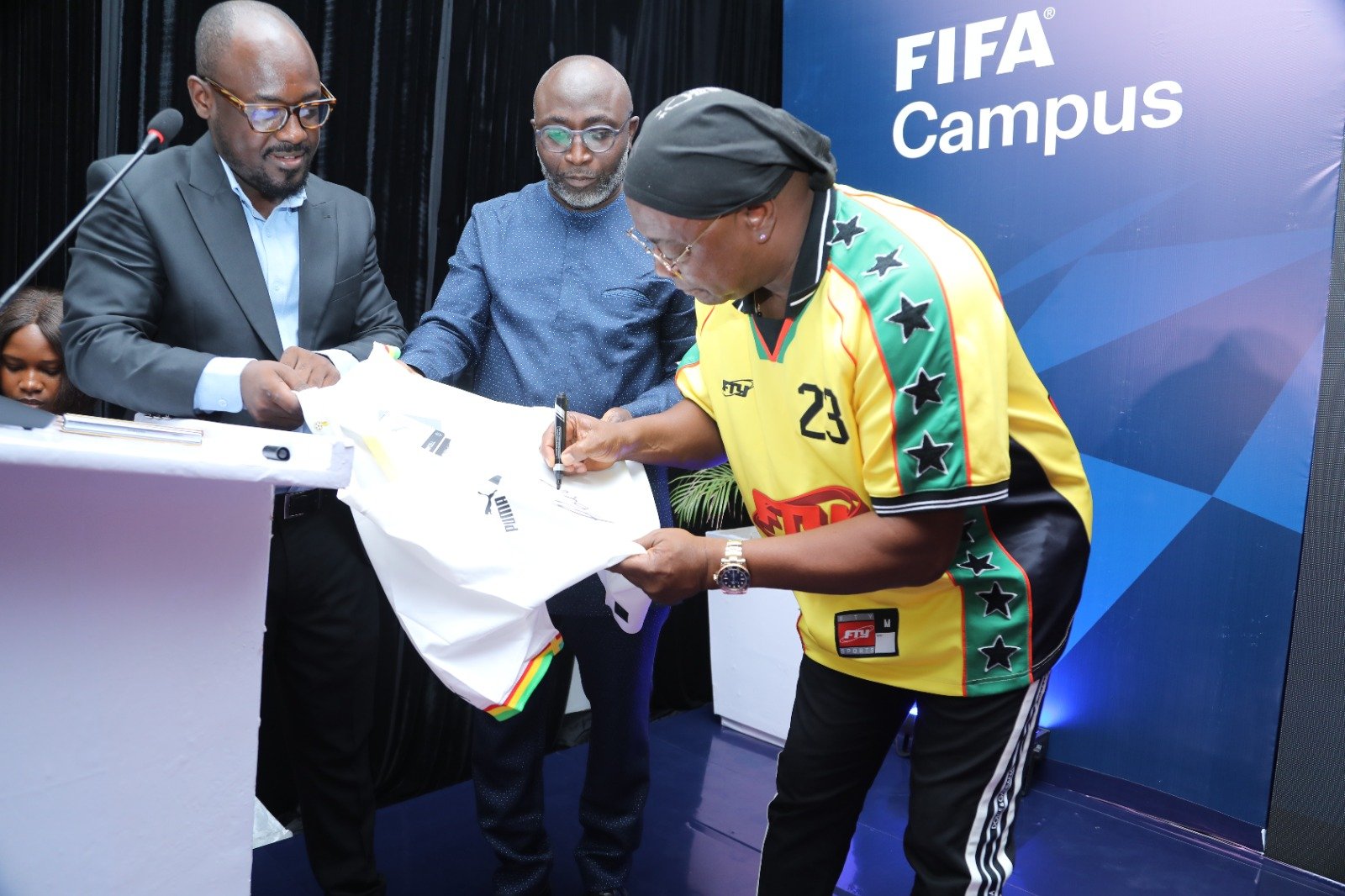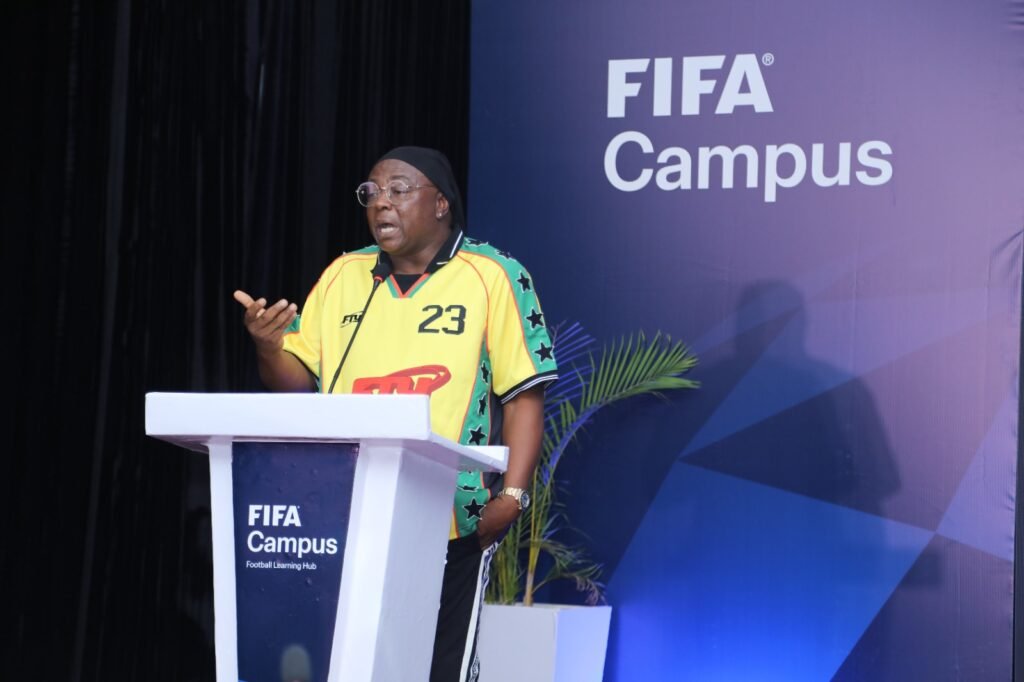Sports
Exit of Esso, 4 others for free … case of managerial lapse or player ingratitude?

The process in securing the signatures of players is one that club officials in charge of transfers always hope to overcome quickly.
It becomes even more cumbersome when more than one club has expressed interest in the player.
As if that is not enough, the posture of the player’s agent and the attitude of the player tend to blow the entire transaction out of proportion.
These and other factors likely contribute to the kind of celebration often witnessed among soccer fans on news that their respective teams have signed certain players.
That aura around such transfers is not only peculiar to the foreign or advanced leagues. It is a phenomenon that cuts across every league competition around the globe.
In Ghana’s football scene, two major events have occurred this week; putting fans on edge as they await a return of football action after the COVID-19 enforced break.
The first was the appointment of Nana Yaw Amponsah, a Ghana Football Association (GFA) presidential aspirant in the last election won by Kurt Okraku and being contested at the Court of Arbitration for Sports (CAS) on the corridors of FIFA as Chief Executive Officer (CEO) of Kumasi Asante Kotoko.
It has come as great news for members of the Porcupine Warriors family as the new CEO has already promised ‘heaven on earth’ for the Reds ahead of the first kick under his tenure.
But reviews over that appointment appears to have overshadowed a ‘Coup d’état’ in Kotoko’s fiercest rivals, Hearts of Oak that has seen five key players of the club exit the team on the free.
Top striker Joseph Esso, Christopher Bonney, Bernard Arthur, Benjamin Agyare and Abubakar Traore were all announced to be departing the club after the expiration of their existing contracts.
In fact, the news came as a shock to many who wondered why a club of Hearts stature would allow top first team players to run down their contracts and leave for free at the end of the season.
Considering the abrupt ending of the season one could pardon the Phobians for what many see as a disaster but as usual, a few have questioned the competence of officials in charge of player transfers and negotiations.
Hearts have found themselves in similar waters in the not too distant past where players like Thomas Abbey, Vincent Atinga, Kwame Kizito and Patrick Razak left the club under similar circumstances.
This will surely give credence to the school of thought of the section of the fans that believes there is something wrong with the club’s negotiation power and managerial skills.
Truth be told, this does not happen often. Even if it does happen, it must not be on such scale but indeed, one also understands how it works when a player takes a decision against an extension; it will take more than negotiation and managerial competence to change that stance – a case in point is the Charles Taylor saga with Hearts and Kotoko involved.
Hearts have since attempted to explain issues to the fans, citing the expectation or demands of the players, especially Joseph Esso, as the reason why those decisions were taken.
As a firm believer in loyalty and commitment, it will be suicidal to keep players whose commitment to a course is hinged on only the financial benefits.
In this industry, trophies remain the biggest currency for any club or player and in Ghana, Hearts and Kotoko represent the brightest platform for any player to win laurels; forget about the recent trend where they seem to have taken a nosedive in terms of performance.
The failure of the club to convince the five players to stay notwithstanding, it is limpidly clear that the players have the lost the desire to be in the rainbow colours and should be allowed to go.

But the case of Manchester City’s Leroy Sane in the English Premier League should offer Hearts and other clubs some lessons that it is not always advisable to let the players run the entire term.
Having failed to persuade the German international to stay, Manchester City sold him with a year left on his contract and got about £40m.
In the Hearts explanation, it was stated that negotiation was ongoing for a while so one could argue that the writing was on the wall; they saw the signs but paid little attention to it.
A legend of the club, Yaw Amankwah Mireku has also attempted to defend the club, parrying the blame on the club’s management and rather sought to cite ingratitude on the part of the players and the treatment often meted out to players when they join clubs.
Of the two, the latter is very striking and is very common with local clubs and coming from a player that excelled on the local scene, it must be taken seriously.
It was unfortunate he didn’t give many details. It will therefore be difficult to explain exactly what he means but from the little experience gained by association to local clubs, it would be important to advise clubs to take such matters serious to reduce such incidence.
By Andrew Nortey
Sports
Kotoko withdraws from Ghana Premier League

Kumasi Asante Kotoko has withdrawn from the Ghana Premier League until further notice.
This follows an incident of hooliganism which occurred during their match with Nsoatreman FC leading to the death of a fan, Nana Yaw Frimpong, better known as Pooley.
In a statement issued by the management, the added that “Finally, Asante Kotoko wishes to state that all footballing activities of the senior team are on hold until further notice. Our stance remains unchanged, we will not resume footballing duties until justice is served, and concrete steps are taken to prevent such barbaric acts from ever happening again.”
They added “In the meantime, management has decided to suspend all activities relating to football on the pitch until further
investigations into the matter.”
Against this backdrop, they called on their archrivals saying, “It is time to end the cycle of violence hooliganism, and lawlessness that threatens the integrity of our game. We call on all clubs to support this cause, especially our greatest rivals on the pitch, Accra Hearts of Oak, because this is bigger than competition–it is about securing the future of our domestic league once and for all.”
“Asante Kotoko remains deeply heartbroken by the tragic events that unfolded at the Nana Koramansah Park, leading to the senseless murder of our cherished supporter, Francis Yaw Frimpong,”they added.
“The pain of his loss still lingers, but in these trying
times, we stand united as a club, a family, and a force for positive change in Ghanaian football. While our grief is immeasurable, we take solace in the fact that justice is beginning to take its course,” he said.
By Edem Mensah-Tsotorme
Read full statement below
Sports
FIFA Financial Governance Workshop: Share insights with local clubs- Abedi Pele

Former three-time African footballer of the year Abedi Ayew ‘Pele’ has called on the Ghana Football Association (GFA) to share lessons from the three-day high-level FIFA financial governance workshop.
The workshop held recently was focused on the latest insights and tools for enhancing financial governance and accountability in football administration.
This, according to Abedi Pele, must be shared with local clubs to help them understand the importance and value of the best financial practices to save Ghana football from its present downward spiral.


He made this known at the closing ceremony of the workshop last Friday in Accra, which was organised for representatives from 10 African countries.
The Ghanaian legend, while applauding FIFA for selecting Ghana to host the high-level intensive workshop, noted that workshops like the just-ended one were what the continent, and especially clubs in Ghana, were crying for to help and position them well for sponsorship and support from institutions of great repute to raise the level of the game higher.
“Issues of financial mismanagement, lack of accountability, transparency, and efficient resource use within football organisations have always been our bane here in Ghana, and with a workshop like this providing participants with valuable insights and tools to fortify their organisations’ financial foundations, ensuring long-term sustainability, accountability, and effective resource management, Ghanaian clubs will begin a reset to proper football management,” he said.
According to him “It’s a feather in the cup of the GFA to have FIFA selecting Ghana for this leg of the workshop. Now I call on you, General Secretary Prosper Harrison Addo, to make sure information from this workshop is spread across to all clubs in Ghana because these are the things they need to strengthen their governance framework and ensure the long-term growth and sustainability of the clubs.”
Mr Harrison Addo noted that it was a call in the right direction, and although his outfit has long started reforms in terms of the club licensing regulations, a lot more would be done to help clubs gain a firm foundation for the future success of the game.
“The workshop has been extremely helpful and equipped us with the tools and knowledge to uphold the highest standards, fostering trust and integrity within our football community,” the Maestro added.
Head of the Financial Governance Programme at FIFA, Christoph Suppiger, said the three-day session emphasised the importance of accountability, transparency, and responsible financial management within the context of the FIFA Forward programme and also helped Member Associations to know how to prevent conflict of interest, planning and budgeting, and the procurement process, as well as the importance of having adequate supporting documentation.
The workshop held under the banner of the newly established FIFA Campus, which serves as the central football learning hub for all FIFA capacity development and education initiatives, had Abedi Ayew decorating all the facilitators and participants with customized sashes as well as presenting signed Black Stars jerseys.
By Raymond Ackumey







